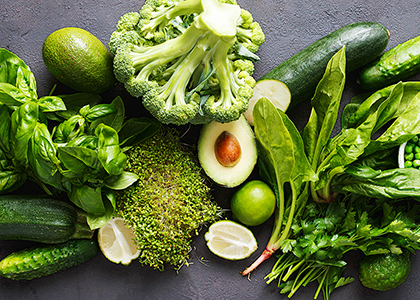
Protein: Will I Get Enough?
By Joe Cross
It’s been three years since Fat, Sick & Nearly Dead hit the world stage – time flies when you’re having fun! I can’t tell you how many times I’ve been around the world, nor how many people I’ve had the good fortune to shake hands with or take selfies with.
One thing I’ve learned along this journey: the fascination that people have with the word protein when it comes to juicing! I would say that at nearly every public talk or event I have given, the question I have been asked the most is “will I be getting enough protein on a juice fast, Joe?”
So, I worked very closely with a group of nutritionists, doctors and scientists that make up the Reboot with Joe Medical Advisory Board. I’ve learned a lot about how our bodies work, including the role of protein. So, here is information about protein and the protein guidelines we use at Reboot with Joe.
What is protein, and why do we need it?
Proteins are the building blocks of life. Every cell in the human body contains protein: it is a major part of our skin, muscles, organs, and glands. We need protein in our diets to help our bodies repair cells and to make new ones.
How much protein we need to eat each day varies by individual and changes with age, activity level and health conditions – no one size fits all. If you have concerns about your specific situation, you can discuss requirements with your doctor.
As a guideline, the US Dietary Reference Intake (DRI)/Recommended Dietary Allowance (RDA) for protein is 46 grams each day for adult women and 56 grams each day for men, while the National Health and Nutrition Examination Survey found that the average American male consumes 102 grams of protein per day and the average female eats about 70 grams.
What about protein on a Reboot?
People tend to think only of animal products as providing protein, but in fact many plant-based foods (avocado, beets greens, collards, broccoli and kale just to name a few) contain a surprisingly high amount. Many vegetables contain some of the essential amino acids or building blocks of protein so you won’t be missing out completely on this important macronutrient.
We will also suggest adding protein powder at specific times or for certain individuals.
A Reboot is a short-term diet designed to lead to healthier eating habits, not a long-term meal plan. The average protein intake from your daily Reboot juices is approximately 20-30 grams per day and it is unlikely that a healthy person would develop a protein deficiency during a short Reboot.
However, a small percentage of people who commit to an extended Reboot – typically 30 days or more – may experience side effects like decreased energy or temporary hair loss or thinning as a result of lowered protein intake. Neither of these are life threatening but hair loss can be alarming! Because of this, my Medical Advisory Board currently recommends that Rebooters add a plant-based protein to their daily juice intake if they are Rebooting longer than 15 days, live a very active lifestyle, have certain health conditions, or exercise often.
What are the best protein sources on a Reboot?
There are several ways you can add a plant-based protein to your Reboot:
Vegan Protein Powders: Pea or Rice
Even foods we typically think of as carbohydrates such as rice or peas contain protein. The protein component can be isolated and processed into a powder form, giving us an easy and effective way to supplement protein on a Reboot.
Most protein powders are developed for use in smoothies and not juices, and so they have added flavoring and sweeteners. When buying a protein powder, take a look at the ingredient list and try to choose one with low to no sugar and free of artificial flavors, colors, sweeteners or preservatives.
Although it varies by manufacturer, on average, pea or rice protein powders provide 15-25 grams of protein/serving.
Whole Food Sources
If you can’t find a suitable protein or don’t you don’t want to buy one, the following are also good sources of protein that can be added to your juice:
- Chia seeds – these seeds swell when soaked in liquid and make a gel consistency in juice, so it’s all about texture when considering this addition to your juice! 1 oz provides about 4 grams of protein.
- Ground flax seeds – these seeds are easier for your body to digest when ground (whole flax seeds may pass through your intestine undigested), and will add a grittier texture to juice. 1 oz provides about 5 grams of protein.
Flax seeds do contain phytoestrogens, so anyone with a history of a hormone related health conditions may want to limit or skip this choice. - Hemp seeds – these seeds provide a nutty flavor but also add a gritty texture to your juice. 1 oz provides about 10 grams of protein.
- Spirulina – is a blue-green freshwater algae that has a strong flavor that may take some getting used to; I’d suggest you start with a small amount! 1 tablespoon provides about 4 gm of protein.
Recommended Amounts
Regardless of which source you decide to use to supplement your protein, if you are of average health, size and moderate activity levels, we recommend an additional 15 to 20 grams of protein a day if on a juice only program of 15 days or longer.